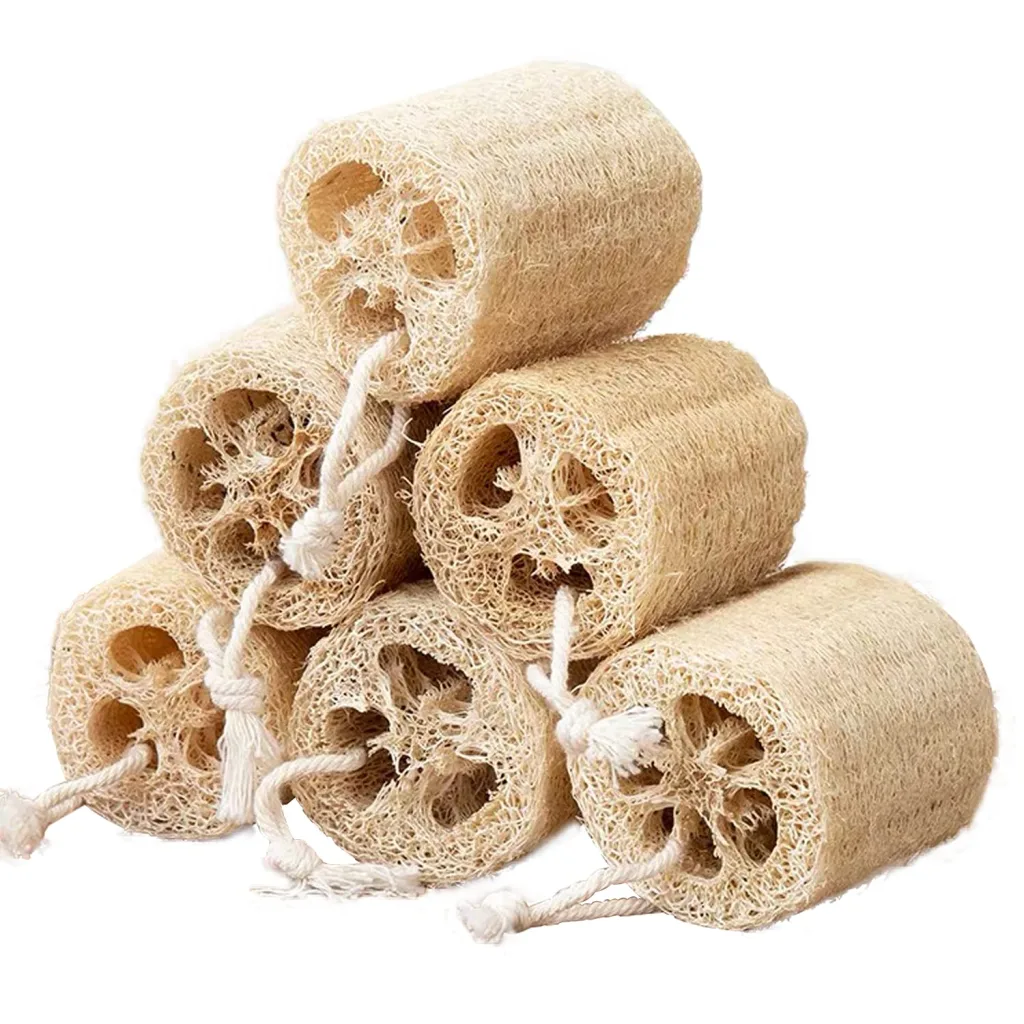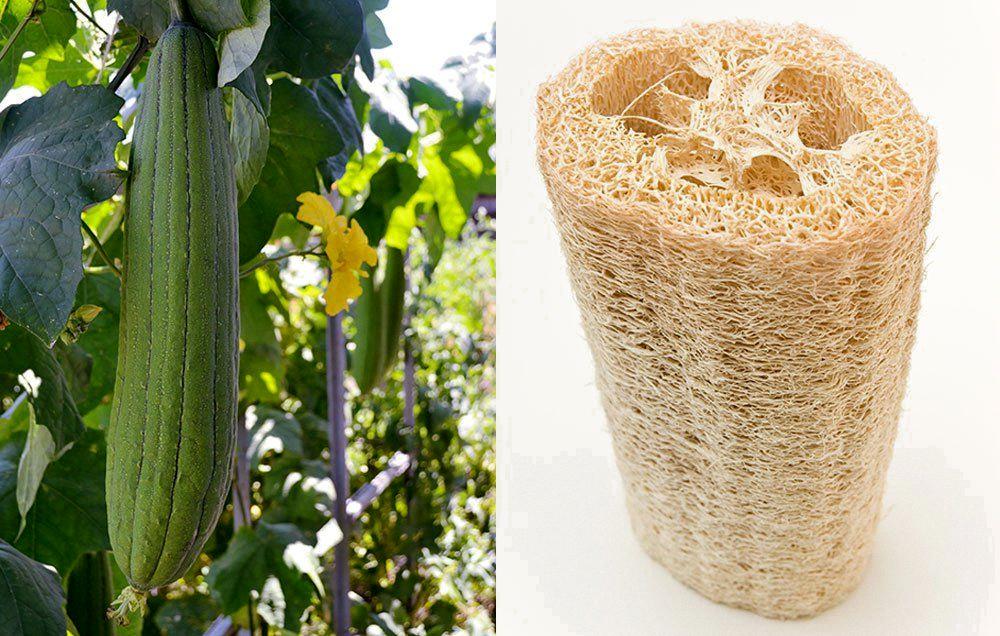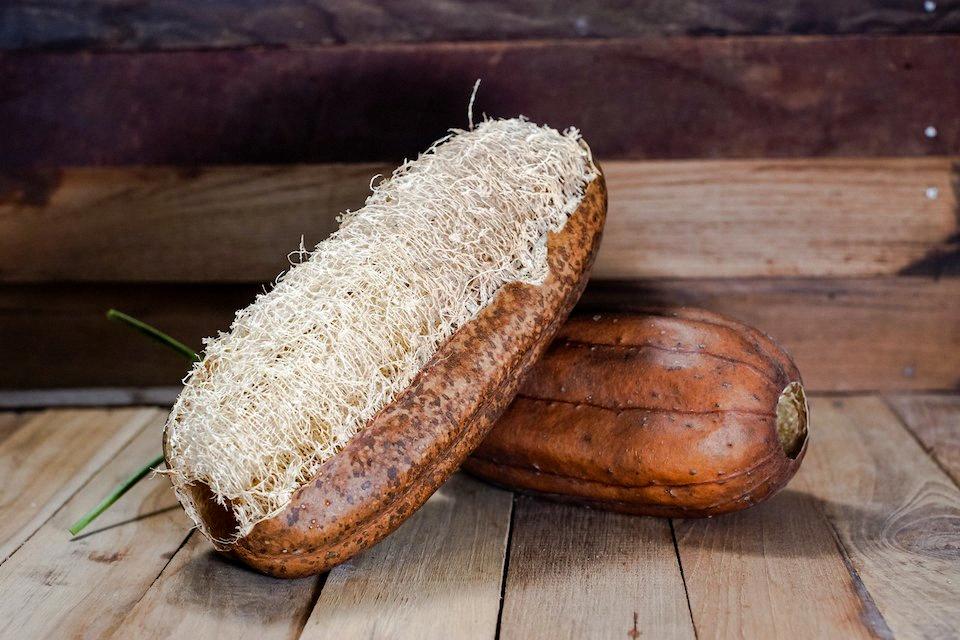If you’ve ever stepped into a bath or shower, chances are you’ve seen a loofah hanging around. These spongy scrubbers are often used to exfoliate the skin, but are they really good for your skin? The answer is not so simple.
First of all, it’s important to understand what a loofah is and how it works. A loofah is a type of plant that grows in tropical climates. The dried fibrous material from the plant is used to make scrubbing items such as poufs, sponges, and mitts. When wet, these materials becoe soft and flexible and can be used to scrub dirt and dead skin cells off the surface of your skin.
The question now becomes: are loofahs bad for your skin? The short answer is that they can be if not used properly. Loofahs have an abrasive texture that can caue irritation if used too often or too vigorously on sensitive skin types. Additionally, because they act like a sponge, they can trap bacteria if not cleaned regularly — something most people don’t do. This means that using a loofah could potentially lead to breakouts and other skin issues if it isn’t taken care of properly.
If you decide to use a loofah in your skincare routine, there are some things you should keep in mind for maximum safety:
• Use only once before washing with soap and hot water
• Replace regularly (every three weeks or so)
• Don’t share with others
• Avoid using on areas prone to breakouts or irritation
• Clean thoroughly afer each use with soap and hot water
Ultimately, whether or not loofahs are bad for your skin depends on how well you take care of them — and how well they match up with your individual needs. If you choose not to use one, there are plnty of other ways to exfoliate (like scrubs or gloves) that may be more suitable for your particular skincare needs.
The Benefits of Using a Loofah or Washcloth for Bathing
It is generally better to use a washcloth rather than a loofah. Washcloths are typically used only once before being washed, wich helps reduce the risk of bacteria building up. Loofahs, on the other hand, have lots of small crevices that make it easier for bacteria to accumulate, so it’s best to avoid them.

Source: etsy.com
Are Loofahs Safe to Use?
Using a loofah to clean your body can be beneficial for some people, however it’s important to remember that regular and correct cleaning is key. If not cleaned correctly, loofahs can become harbors for bacteria such as E. coli. Loofahs can also be too abrasive for some skin types and should be used with caution. It’s best to consult with a dermatologist if you have any questions or concerns about using a loofah on your skin.
Is Daily Loofah Use Safe?
No, it is not recommended to use a loofah everyday. Excessive use of a loofah can lead to dryness, itching and culd strip your skin of its natural oils. Using a loofah twice a week is generally considered sufficient for most people. If you want to use it more than that, make sure you are moisturizing afterwards and using only light pressure when scrubbing. Be careful not to scrub too harshly or the skin may become irritated.
The Best Tool for Washing Your Body
The best tool to wash your body with is a gentle cleanser and lukewarm water. Using a mild, fragrance-free cleanser will help to keep the skin’s natural oils intact while still cleaning away dirt, bacteria and other debris. For extra hydration, you may want to add a creamy body wash or moisturizing bar soap to your routine. When washing with a cloth or sponge, use gentle circular motions that go with the flow of the skin’s texture. Make sure to rinse off all cleansers completely and dry off with a clean, soft towel.
The Benefits of Using Alternatives to a Loofah for Hygiene
A sea sponge is more hygienic than a loofah. Sea sponges are naturally occurring and free of any dyes, preservatives, or chemicals that might be present in a loofah. Furthermore, sea sponges contain enzymes that kill bacteria and are much less prone to harboring germs and bacteria. To ensure maximum hygiene, your sea sponge should be cleaned regularly, dried afer each use, and replaced frequently.

Do Dermatologists Recommend the Use of Loofahs?
No, dermatologists typically do not use loofahs as part of their skincare routine. Loofahs are made from a fibrous material and have the potential to irritate the skin, strip away its natural oils, and cause micro-tears in the skin. Instead, dermatologists typically recommend gentle cleansing with a mild cleanser and then following up with a moisturizer.
The Best Way to Exfoliate Your Body
The best way to exfoliate your body is to use a gentle scrub or chemical exfoliator. Start by wetting your skin with lukewarm water and then apply the product in small circular motions for about 30 seconds. Rinse off with lukewarm water and pat dry. You can also use a brush or sponge with short light strokes, but avoid using these on any open cuts or wounds or sunburned skin. Exfoliating your body regularly can help remove dead skin cells, improve circulation, and leave your skin feeling smoother and looking brighter.
Frequency of Loofah Replacement
Loofahs should be replaced on a regular basis to maintain hygiene and effectiveness. For plastic loofahs, it is recommended to replace them evry four to six weeks. Natural sea sponges should be replaced more frequently, typically every three to four weeks. It is important to rinse loofahs thoroughly after each use and hang them in a well-ventilated area away from moisture so they can dry completely between uses. Additionally, avoid using the same loofah for different body parts to prevent the spread of bacteria and fungi.
The Benefits of Natural Loofahs
Yes, natural loofahs are a great alternative to traditional sponges when it comes to cleaning. They are more durable and have a rougher texture which helps to scrub away dirt and debris more effectively. Natural loofahs are also better suited for removing tough stains, grease, and soap scum from surfaces. Additionally, they are naturally antibacterial and can be used multiple times before needing to be discarded.

Source: goodhousekeeping.com
Do Loofahs Accumulate Bacteria?
Yes, loofahs build up bacteria due to the warm, wet environment inside shower stalls. After a few uses, loofahs fill with dead skin cells and bacteria, which can be unhealthy for the skin. To prevent this buildup of bacteria, it is important to replace your loofah every few weeks or at least regularly sanitize it by soaking it in a solution of vinegar and water or placing it in the dishwasher.
Cleaning a Loofah After Use
It’s important to clean your loofah after each use to prevent bacteria and germs from building up. To do so, first rinse off your loofah with warm water and hang it in a dry space to air dry. Once it is completely dry, soak the loofah in a diluted bleach solution for five minutes. This will help kill off any bacteria or germs that may have been lingering on the surface. After that, rinse off the bleach solution with warm water and let air dry again. Finally, add a few drops of essential natural oils such as lavender or tea tree oil to the soaked loofah bfore using it again. This will give it an extra boost of antimicrobial protection against any lingering bacteria or germs while still being gentle on your skin.
The Benefits of Using a Loofah
Using a loofah offers several benefits for your skin. It is an effective way to exfoliate, removing dead skin cells and promoting new cell growth. It can also help to improve circulation, which can leave your skin looking healthier and more vibrant. The rough fibers of the loofah also act as a gentle massage, helping to relieve any tension or tightness in the muscles in your face and body. In addition, usig a loofah can help reduce the appearance of acne and other blemishes by unclogging pores. Finally, it can provide a great way to relax and pamper yourself during bath time or showering!
Frequency of Showering for Women
Women should shower at least once a day. Showers can help remove dirt, sweat, and oils from the skin, as well as keep it moisturized. Showering also helps to keep hair clean and healthy. Some people may find that they need to shower more than once a day if they are engaged in physical activity or exposed to dirtier environments. Additionally, it is important to use a gentle cleanser when showering that is specifically designed for the face and body. Finally, it is essential to rinse off all soap and shampoo thorouhly with warm water. Doing so can help keep skin from becoming irritated or dried out.

Source: sandiegoseedcompany.com
Washing Order in the Shower
In the shower, it is important to follow a specific order for best results. First, you should exfoliate your skin with an exfoliating scrub or brush to remove dead skin cells and reveal soft, glowing skin. Then, wash your hair with shampoo and conditioner to keep it clean and healthy. Finally, use a body wash and scrub to cleanse your body and remove dirt and oil. Following this order will help you get the most out of your shower routine!
The Importance of Washing One’s Body Daily
It is important to wash your entire body on a daily basis. Start with your armpits, using a mild soap and warm water. Make sure to scrub your underarms for at least 20 seconds. Next, move down to the groin area and cleanse the genitals, perineum (the area beteen the genitals and anus), and buttocks with a mild soap. Again, scrub thoroughly for at least 20 seconds. After that, move to the feet and use a mild soap to lather up the top and bottom of each foot, as well as in between the toes. Finally, rinse off all areas with warm water.
Conclusion
In conclusion, it is best to avoid using a loofah for daily body cleansing. While loofahs may be convenient for scrubbing away dead skin cells and dirt, they can become breeding grounds for bacteria if not properly cleaned and maintained. Additionally, the abrasive texture of a loofah can be too harsh on some skin types, leading to dryness and irritation. For everyday body cleansing, it is recommended to use bare hands or a soft cloth or flannel instead.
